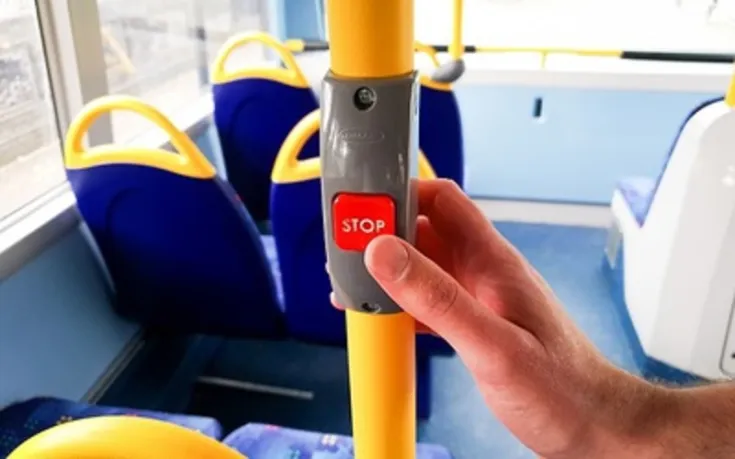You most likely have heard of the tragic fire at the Pulse disco that killed 59 young people and injured 100s others in Macedonia. For a small country where so many have emigrated in recent years, to lose so many young people’s lives in a single calamity like this is devastating.
The fire occurred in the city where my father comes from. But depending on your source, there has been three spellings for the name of this city: Kocani, Kočani and Kochani.
So why is there three spellings and is any of them the ‘correct’ one?
It’s all to do with the romanisation of the Cyrillic alphabet used for writing Macedonian, a Southern Slavic language closely related to Bulgarian and Serbian. Romanisation is the conversion of text from one writing system into Roman (or Latin) script. During Yugoslav times, the romanisation of Macedonian was standardised to match that of the other Slavic languages of the federation: Serbo-Croatian and Slovenian. This system contains all the standard Roman/Latin letters plus some extras with the háček (a little ‘v’) above ‘c’, ‘s’ and ‘z’ to render the sounds that appear in English as ‘ch’, ‘sh’ and ‘zh’, as well as a few letters (depending on language) with a simple accent mark.
All fine and well, until the advent of widespread computer and internet use, and text messaging. As the initial keyboards on computers were your usual English QWERTY boards, there was no accommodation for diacritics (the extra markings on letters, such as our friend the háček), so people in ex-Yugoslavia would just write without these markings. That means Kočani would become ‘Kocani’. Normally context and prior knowledge would allow for readers of these languages to distinguish where these letters with diacritics are, but not always. For instance, ‘guska’ can be interpreted as ‘guska’ (goose) or ‘guška’ (hug). Plus, people unfamiliar with these letters would have no idea how to pronounce them. To fix this, in 2008 the Macedonian authorities decided officially to ditch the previous romanisation system and adopt a new one based on the English keyboard and phonetics, eliminating the use of any diacritics. This resulted in Kočani officially becoming ‘Kochani’. It also meant that many Macedonians found that the spelling of their names in Roman script had changed, which in a post-9/11 world where the slightest spelling discrepancy in documents can arouse suspicion, meant that Macedonians now faced greater challenges when dealing with foreign authorities. Needless to say, in true Balkan style implementation of this new romanisation system has hardly been universal, so there are still plenty of signs showing the old spelling, not to mention that many Macedonians are too used to the old system to change over.
Still, to answer the question, the current ‘correct’ way to spell the city’s name is ‘Kochani’.
Now to the elephant in the room…

The headlines were splashed with ‘North Macedonia fire’. Grammatically speaking this would imply that the name of the fire is ‘North Macedonia’ as this is a proper noun and not an adjective. Hey, you wouldn’t say ‘Spain fire’ or ‘France president’ but ‘Spanish fire’ and ‘French president’. But using ‘North Macedonia’ as an adjective has been the trend for news agencies despite not conforming to grammar rules. Officially speaking, according to the Prespa Agreement signed between the Republic of Macedonia and the Hellenic Republic in 2018, in the interests of protecting Macedonian national identity, the adjective and demonym for ‘North Macedonia’ were not to be ‘North Macedonian’ but simply ‘Macedonian’. This might at first seem unnatural as we usually have adjectives and demonyms such as ‘South African’, ‘North Korean’, ‘South Sudanese’, etc., for countries with geographical references in their names, but it does fit with the usage for other countries where there are no obvious counterparts, such as East Timor, where the adjective is usually just ‘Timorese’ over ‘East Timorese’.
So why then are these agencies and other authorities (including governments) using ‘North Macedonia’ as an adjective despite what was officially mandated? Well, we can only speculate, though most likely it’s not to ‘cause confusion’. Greeks are quick to point out that ‘Macedonian’ could be used to refer to the region of Macedonia in northern Greece, though honestly, apart from some Greeks, how many people in this world will be truly confused and losing sleep over this one? Still, with the nature of trolls, both online and official, and with ‘North Macedonian’ supposed being off-limits (though this definitely appears), they've opted for this grammatical exception as a compromise to spare themselves the outrage.
Do note though that Macedonians always refer to their country as ‘Macedonia’. This goes all the way up to the president. Only in the most official of settings (such as on letterheads or signs at official government buildings) and for a foreign audience will there be reference to ‘North Macedonia’. Using ‘North Macedonia’ with Macedonians will result in negative backlash, and you might be subjected to an impromptu and yet very intense history lesson, so you’ve been warned.
I like to send my condolences to everyone who has been affected by this tragedy. Бог да ги прости сите загинати!























































.%20A%20day%20of%20campaigning%20%E2%99%80%20%E2%80%A6%20or%20a%20day%20to%20buy%20flowers%20%F0%9F%92%90.jpg)

















































